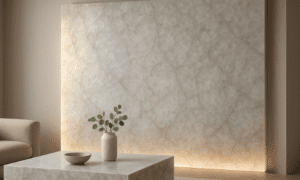Acoustic panels are a popular way to reduce noise and increase sound quality in your music or movie listening environment. In this article, we’ll take a look at some of the best Acoustic panels on the market and tell you what they can do for you.
What are acoustic panels?
Acoustic panels are sheets of thin, sound-absorbing material that can be attached to walls and ceilings to reduce noise levels in a room. They come in a variety of materials, including compressed air, foam, or fiberglass.
When acoustic panels are installed correctly, they can help to reduce noise levels by up to 50%. They’re especially useful if you have a busy family or work environment and find yourself constantly battling with annoying sounds from the TV, computer, or other appliances.
There are a few things to keep in mind when choosing acoustic panels: first, make sure the material is suitable for the area in which it will be used. Second, be sure to install them properly so they can do their job properly. Finally, consider using acoustic panels together with other noise-reduction measures such as ear plugs or curtains.
How do acoustic panels work?
Acoustic panels are a great way to reduce sound interference and improve the acoustic quality in your home or office. They use sound waves to create a barrier that blocks sound from traveling into or out of an area. This can be helpful for improving the privacy of people in a space, reducing noise from traffic, or improving the acoustics of a room.
There are a few different types of Acoustic panels: absorbent, reflective, and transmissive. Absorbent acoustic panels work by absorbing sound waves and then releasing them slowly over time. This type of panel is usually used to reduce noise levels in rooms with high ceilings. Reflective acoustic panels bounce sound back towards the source instead of absorbing it. This type is usually used to improve the acoustics of hallways and other spaces with low ceilings. Transmissive acoustic panels allow sound to pass through them unimpeded. This type is usually used to improve the acoustics of rooms with heavy, noisy traffic.
When choosing an acoustic panel, make sure to consider your needs and wants for your specific space. Acoustic panels can be expensive, so be sure to factor that into your decision-making process. Additionally, keep in mind that acoustic panels will not completely eliminate noise from outside sources; they will only reduce it. If you need complete silence, you may want to look into more invasive solutions such as soundproofing or installing an actual wall.”
Types of acoustic panels
There are many types of acoustic panels available on the market today. They come in all shapes and sizes, and can be used for a variety of purposes.
One popular type of acoustic panel is the sound barrier. Sound barriers are used to reduce noise levels in areas where there is a lot of noise pollution. They can be used in offices, homes, factories, and other noisy environments.
Another type of acoustic panel is the bass trap. Bass traps are used to reduce the low-frequency sounds in an audio system. This helps to improve the sound quality and clarity of your music or audio recordings.
Acoustic panels can also be used to reduce sound waves from entering a room through large openings such as windows or doors. This is useful when you want to create a more silent environment for sleeping or working.
Benefits of using acoustic panels
Acoustic panels are a great way to reduce noise in your home or office. They help to absorb sound, which can make it difficult for people nearby to hear conversations or working on projects. Acoustic panels are also effective at blocking out external noise, such as traffic noises or construction sounds.
Some potential benefits of using acoustic panels include:
– Reduced noise levels in your home or office
– Increased privacy and discretion when working or studying
– Protection from noisy environments outside
Things to keep in mind when using acoustic panels
When selecting acoustic panels, it is important to keep in mind the following:
-Panel type: There are a variety of panel types available on the market, and each has its own advantages and disadvantages.
-Panel material: Acoustic panels are typically made from several different materials, including wood, fiberglass, or aluminum.
-Speaker size: The size of the speakers in an acoustic panel affects the type of sound that can be produced.
-Speaker placement: The position of the speakers in an acoustic panel affects the quality of sound that is produced.



































